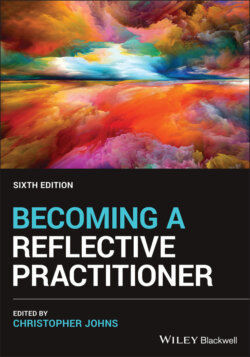Читать книгу Becoming a Reflective Practitioner - Группа авторов - Страница 32
Mandy Reflects on Having a Vision for Practice
ОглавлениеIn one reflective practice workshop Chris shared his experience of constructing the Burford model vision. This was a sharp wake up call. I recalled that the department had its own philosophy but if I was challenged as to its contents I would have failed miserably. Once back in the department, I eventually found the operational policy buried away in a filing cabinet. Included in its contents is the department’s philosophy of care however it did not state who had devised it and when. I asked one of my colleagues who had worked in the department for many years as to the origin and author of the philosophy; she looked at me blankly and said ‘I am sorry, I did not know we had one duck’.
In my next management supervision I raised this issue with my manager who also was ignorant of these facts but thought it might have been based upon the acute services philosophy. I compared the department’s philosophy with one of the acute inpatient wards, only to discover that it was exactly the same. Johns ( 2013 ) draws attention to the difficulties caused by having an imported philosophy imposed on a practice: it denies articulation of the practitioner’s own beliefs and values and is easily forgotten. What then is the point in having a generic philosophy devised by someone else, locked away in a filing cabinet? None‐whatsoever. Reflecting upon this, I established that the team believes that we provide a high standard of individualised care for patients within the department. However, we lack evidence to validate this. By not having a philosophy of care constructed on our collective beliefs and objectives of our practice, how do we know where we are going and the rational for the journey?
